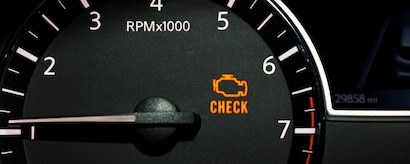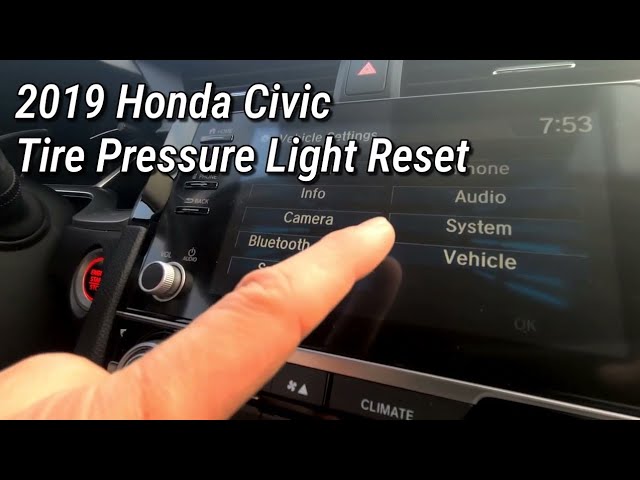As an Amazon Associate, I earn from qualifying purchases
Have you ever noticed your Honda Civic’s check engine light suddenly turn on and felt a surge of worry? You’re not alone.
That little warning can be confusing and even a bit scary, especially when you don’t know what’s causing it. But understanding why your check engine light comes on is the first step to fixing the problem quickly and avoiding costly repairs.
Keep reading, and you’ll discover the most common reasons behind this warning, so you can take control and keep your Civic running smoothly.
Common Triggers
The check engine light on a Honda Civic can turn on for many reasons. Some causes are simple and easy to fix. Others need attention from a mechanic. Knowing common triggers helps you understand what might be wrong. It also saves time and money on repairs.
Here are three common triggers that often cause the check engine light to appear.
Loose Gas Cap
A loose gas cap is a very common cause. It lets fuel vapors escape from the tank. The car’s computer detects this and turns on the light. Tightening the gas cap can fix the issue quickly. Always check the cap after refueling.
Faulty Oxygen Sensor
The oxygen sensor measures the amount of oxygen in the exhaust. It helps the engine run efficiently and reduce pollution. A faulty sensor gives wrong data to the car’s computer. This leads to poor fuel economy and higher emissions. Replacing the sensor clears the light and improves performance.
Malfunctioning Catalytic Converter
The catalytic converter reduces harmful gases from the exhaust. It is important for meeting pollution rules. A malfunctioning converter causes the check engine light to come on. It may also cause poor engine performance and strange smells. Repair or replacement is needed to fix this problem.

Credit: www.penskehondaindy.com
Engine And Emission Issues
The check engine light on a Honda Civic often signals engine and emission problems. These issues affect how the engine runs and how clean the exhaust gases are. Ignoring these warnings can lead to poor fuel economy and higher emissions. Understanding common causes helps you act fast and save money on repairs.
Bad Spark Plugs Or Wires
Spark plugs and wires ignite the fuel in the engine cylinders. Worn or damaged spark plugs cause misfires. This makes the engine run rough and reduces power. The check engine light may come on due to incomplete combustion. Replacing spark plugs or wires improves engine performance and stops the warning light.
Mass Airflow Sensor Problems
The mass airflow sensor measures air entering the engine. It helps the engine control unit adjust fuel delivery. A faulty sensor sends wrong data, causing poor engine performance. Symptoms include rough idling, stalling, and reduced fuel efficiency. Cleaning or replacing the sensor can turn off the check engine light.
Egr Valve Malfunction
The EGR valve recirculates exhaust gases back into the engine. This reduces nitrogen oxide emissions. A stuck or clogged EGR valve causes rough idling and engine knocking. It also triggers the check engine light. Fixing or cleaning the EGR valve restores proper function and lowers emissions.
Sensor And Electrical Problems
Sensors and electrical parts play a big role in your Honda Civic’s engine health. These parts send signals to the car’s computer. The computer uses these signals to control the engine and other systems. If a sensor or electrical part fails, the check engine light may turn on.
Electrical problems can cause wrong signals or no signals at all. This confuses the engine computer. It may think there is a problem and turn on the warning light. Let’s explore some common sensor and electrical issues that trigger the check engine light.
Faulty Camshaft Or Crankshaft Sensor
The camshaft and crankshaft sensors track engine position. They tell the computer when to inject fuel and fire spark plugs. If one sensor fails, the engine may run rough or stall. The check engine light often comes on.
These sensors wear out over time. Dirt, heat, or damage can cause failure. Replacing a bad camshaft or crankshaft sensor usually fixes the problem quickly.
Battery And Charging System Issues
The battery and alternator supply power to the car’s electronics. Low voltage or charging problems can confuse the engine computer. This may trigger the check engine light.
Corroded battery terminals, a weak battery, or a failing alternator cause these issues. Regular checks keep the battery and charging system healthy. This prevents electrical faults and warning lights.

Credit: www.autonationhondarenton.com
Other Possible Causes
The check engine light in a Honda Civic can turn on for many reasons. Some problems are simple, but others may need expert care. This section covers other possible causes that might trigger the warning light.
Transmission Problems
Transmission issues can cause the check engine light to glow. The car may shift gears roughly or slip. Sensors inside the transmission may fail. These sensors send wrong data to the engine computer. This causes the light to come on. A mechanic can scan for specific transmission codes.
Vacuum Leak
A vacuum leak happens when air enters the engine in the wrong way. This makes the engine run poorly or stall. The car’s sensors detect this problem and trigger the light. Small cracks or broken hoses often cause leaks. Fixing the leak helps the engine run smooth again.
Exhaust System Damage
Damage to the exhaust system can also light up the warning. A broken catalytic converter or muffler can cause problems. The engine may lose power or make strange noises. Sensors near the exhaust check emissions and performance. Faulty parts or leaks in this system cause the light to flash.
Diagnosing The Light
The check engine light on a Honda Civic signals a problem in the vehicle’s system. It can be caused by many issues, from small to serious. Diagnosing the light helps find the exact cause. This saves time and money. You can start diagnosing at home or get help from a professional.
Using An Obd-ii Scanner
An OBD-II scanner reads the car’s computer codes. These codes show what triggered the check engine light. Connect the scanner to the car’s port, usually under the dashboard. Turn on the car and the scanner. The device will display error codes.
Each code points to a specific problem. Common codes include issues with oxygen sensors, spark plugs, or the gas cap. The scanner helps identify if the problem is simple or needs repair. It is a useful tool for quick checks.
When To Visit A Mechanic
Some problems need a mechanic’s expertise. If the check engine light flashes or stays on after resetting, visit a shop. Strange noises, poor engine performance, or a burning smell also require professional help.
Mechanics use advanced tools and skills to diagnose complex issues. They can fix problems safely and correctly. Visiting a mechanic prevents further damage and ensures your car runs smoothly.
Preventing Check Engine Light Activation
Preventing the check engine light from turning on can save time and money. It helps keep your Honda Civic running smoothly. Small actions can stop many common problems. Regular care avoids most issues that trigger the light.
Regular Maintenance Tips
Change the oil and filter on time. Clean air filters help the engine breathe better. Check spark plugs and replace worn ones. Inspect the gas cap to ensure it fits tight. Loose caps cause fuel leaks and errors. Keep the battery clean and terminals free from corrosion. Follow the maintenance schedule in your owner’s manual.
Fuel Quality And Driving Habits
Use good quality fuel recommended for your Civic. Low-quality fuel can cause engine problems. Avoid running the tank almost empty often. Drive smoothly, avoiding hard braking and fast acceleration. Warm up the engine before driving in cold weather. These habits reduce stress on the engine and parts. They help prevent the check engine light from appearing.

Credit: www.youtube.com
Frequently Asked Questions
What Common Issues Trigger The Check Engine Light On Honda Civic?
The light often signals problems like loose gas caps, bad sensors, or engine misfires.
How Does A Loose Gas Cap Cause The Check Engine Light?
A loose or damaged gas cap can leak fuel vapor, causing the engine light to turn on.
Can Bad Oxygen Sensors Cause The Check Engine Light On Honda Civic?
Yes, faulty oxygen sensors affect fuel mix and trigger the check engine warning.
Does A Dirty Air Filter Affect The Check Engine Light?
A clogged air filter can reduce engine performance and sometimes turn on the check engine light.
How Can Engine Misfires Lead To The Check Engine Light?
Misfires disrupt engine running, causing emissions issues and lighting up the check engine indicator.
When Should I Visit A Mechanic For The Check Engine Light On Honda Civic?
If the light stays on or blinks, or the car runs poorly, see a mechanic soon.
Conclusion
The check engine light on a Honda Civic signals a problem. It could be a loose gas cap, a faulty sensor, or engine trouble. Ignoring the light may cause bigger issues later. Regular car checks help catch problems early. Use a scanner or visit a mechanic for a clear diagnosis.
Staying aware keeps your car running smoothly and saves money. Don’t wait until the light blinks or stays on constantly. Act quickly to keep your Honda Civic safe and reliable on the road.
As an Amazon Associate, I earn from qualifying purchases


